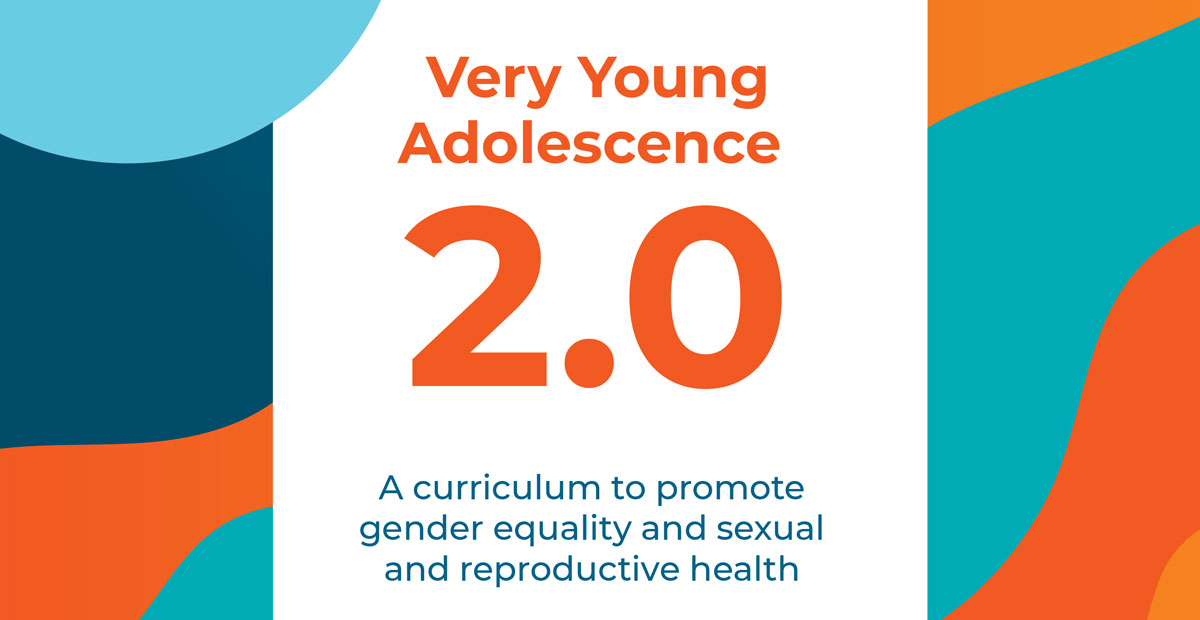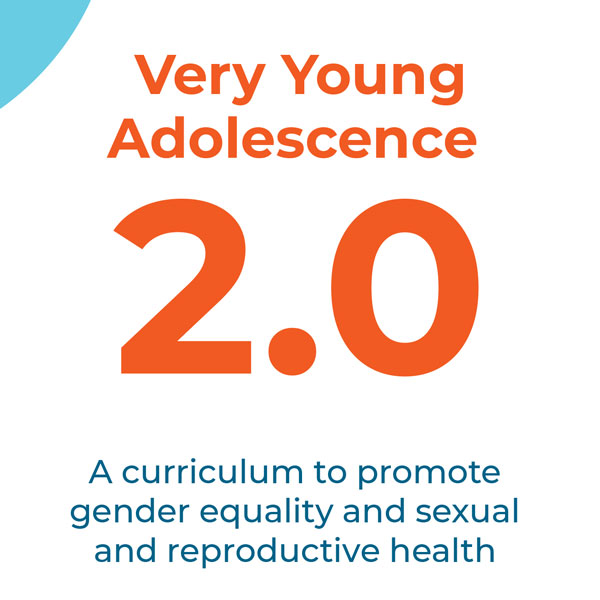
By Jane Kato-Wallace, Equimundo, and Monica Patricia Malata, College of Medicine in Malawi
Equimundo and the College of Medicine at the University of Malawi are proud to launch Very Young Adolescence 2.0: A curriculum to promote gender equality and sexual and reproductive health. Supported by UNICEF Malawi, this program was adapted and pilot-tested in Malawi in 2017.
Why Very Young Adolescence?
The period of adolescence is now widely recognized as an important time of transition into young adulthood. Hormone levels, social norms, and expectations of how young people should act are changing during this time; adolescents begin relying more on peer groups to integrate more fully into society as they slowly enter into adulthood. This is often a time of increasing freedom (and responsibility) for boys and restrictions for girls. It is also a time of experimentation. In the past decade, there has been a growing consensus that very young adolescents are at a critical age range in which most young people begin to experience puberty, turn increasingly to peers as reference points, and experiment with social risk-taking behavior. Gender norms play a critical role in all of this.
We believe that very young adolescence is also a period of opportunity to support youth to live up to their full potential. Young people need emotionally supportive family and peer networks, and space to define their own gender identities and gender expression. Innovative programming is needed to support very young adolescents during this critical period of transition to live healthier, happier lives.
The College of Medicine embarked upon the Global Early Adolescent Study of parents and 10-14 year-old boys and girls attending two very large primary schools in Blantyre, Malawi. This research picked up on certain themes that influence young people’s lives, and informed the Very Young Adolescence 2.0 curriculum. They include:
- Environment: Situated in busy informal settlements, school compounds are not secure, and there are challenges with theft and antisocial behavior.
- Preoccupations: Like young people everywhere, there is awareness of bodily changes and emerging sexual feelings among very young adolescents in Malawi. Young adolescents are often unprepared for sexual debut.
- Practical matters: As with many other settings, menstrual hygiene is a serious issue. Girls have difficulty obtaining pads, washing and drying improvised cloths or pads (especially in the rainy season), and obtaining sufficient privacy at home or school. Boys are sometimes embarrassed by a lack of underclothes. Latrines and water are very limited in availability.
- Gender norms and socialization: In this urban setting, there is a mix of communities who have migrated from different rural areas with a variety of traditions related to gender norms and initiation practices.
About the Manual
The curriculum focuses on challenging and redefining what it means to be a young girl or boy, in addition to highlighting social and emotional learning. This form of learning has been shown to enhance students’ capacity to integrate skills, attitudes, and behaviors to deal effectively and ethically with daily tasks and challenges. It includes five core competencies: self-awareness, self-management, social awareness, relationship skills, and responsible decision-making.
The manual, which is structured in a 12-session curriculum, will enable boys and girls to:
- Recognize and question unequal relations of power and privilege that undermine very young adolescents’ well-being;
- Recognize and challenge harmful gender norms in order to promote girls’ agency and empowerment and boys’ care and connection to others;
- Learn to appreciate the sexual and reproductive changes happening to their bodies in age-appropriate and “body positive”ways; and
- Recognize violence and develop the skills to challenge and prevent it.
The manual will be launched in Lilongwe, Malawi at Wamkulu Palace Lodge on September 25, 2018. The launch is expected to attract a diverse audience including the Ministry of Health, Ministry of Education, and other stakeholders.
The Very Young Adolescence 2.0 curriculum is available online here.
